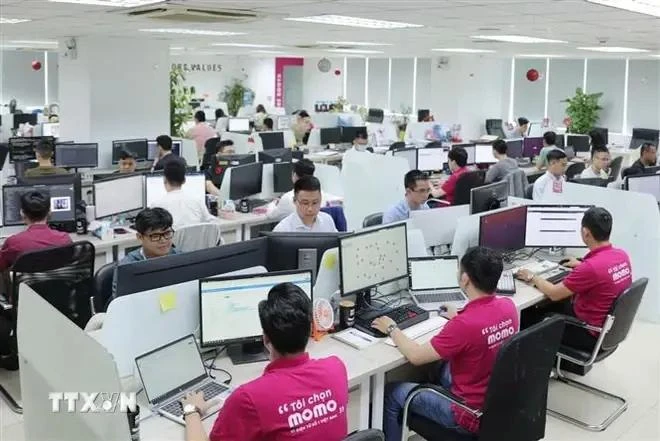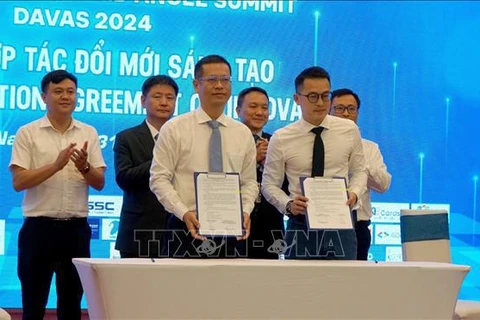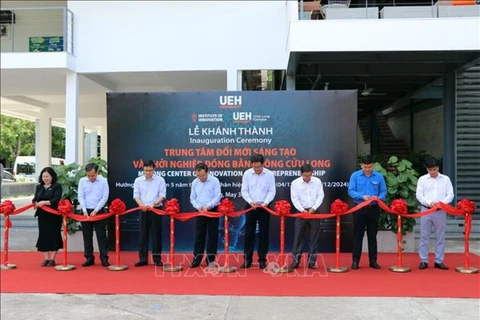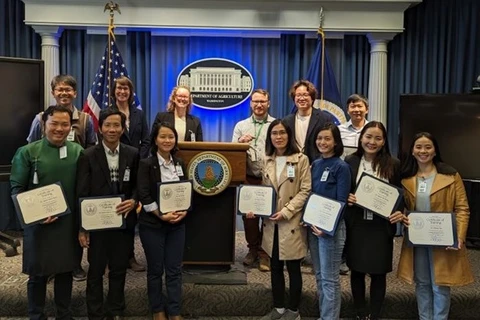
Hanoi (VNA) – The recent vigorous growth of startups in Vietnam has attracted domestic and foreign investors, but insiders recommended more efforts be made to facilitate startups’ access to funding from investors so that they can live up to potential.
There are about 3,800 start-ups in Vietnam at present, including 11 valued at over 100 million USD and three at more than 1 billion USD each, according to the National Agency for Technology Entrepreneurship and Commercialisation Development under the Ministry of Science and Technology.
Current funding for startups mainly comes from the State’s support, investors, foreign and domestic venture funds, funds established by enterprises, incubation establishments, business support organisations, angel investors, and loans.
Data from BambuUP, a one-stop innovation platform, show that there are about 210 venture funds investing in startups in Vietnam at present, including nearly 40 domestic funds. It is a fact that investors and venture funds play a crucial role in supplying capital for startups.
The Vietnam Innovation and Tech Investment Report 2021, released by the National Innovation Centre (NIC), indicated that 1.4 billion USD in venture capital was poured into Vietnamese startups in 2021.
About 90% of the sum came from foreign venture funds, estimated ThinkZone Ventures, a local-resourced venture capital firm.
Meanwhile, a report by management consulting firm Bain & Company said Vietnam is leading the way in attracting long-term investors in Southeast Asia. Investors believe that investment activities in the country will increase by 83% in the 2025 - 2030 period, compared to now.
However, experts said international investors are also facing many difficulties when operating in the local startup investment market.
They pointed out that foreign venture funds are directly investing in startups in Vietnam as ordinary foreign investors. Therefore, they still encounter certain difficulties in seeking investment licences, managing their investments, divesting capital, transferring profit to their home countries, and handling tax-related issues.
Due to such problems, many foreign investors decided not to directly invest in Vietnamese startups but requested them restructure to set up parent companies in other countries to pour capital into those parent firms and benefit from foreign incentives. This has led to more expenses in tems of consulting, establishment, and maintenance of legal entities overseas, causing disadvantages for startups when they have to operate in an unfamiliar legal environment.
ThinkZone Ventures held that there remain many problems related to regulations, so it has faced many difficulties when investing in Vietnamese startups. Therefore, it is necessary to improve the business climate and issue comprehensive regulations on startup investment.
Bui Thanh Do, founding partner and CEO of ThinkZone Ventures, said policies must be favourable for investment funds’ activities and create a transparent, equal, and stable business environment for the funds to confidently invest in startups in Vietnam. Preferential policies should also be issued such as cutting taxes, giving financial aid, providing concessional credit, and opening special economic zones with favourable infratructure and services.
Apart from startups’ own efforts, CEO of BambuUP Nguyen Huong Quynh perceived that to enhance the Vietnamese startup ecosystem’s attractiveness in domestic and foreign investors’ eyes, it is necessary to launch more startup support programmes, carry out stronger communications to help investors learn about Vietnam’s startup ecosystem, and create a favourable mechanism for foreign investment funds to invest in or divest from local companies.
She also highlighted the need to promote cooperation opportunities for domestic enterprises and startups because domestic firms’ investment strategies towards startups also help facilitate capital flows.
Pham Ngoc Huy, Managing Director of Lotte Ventures Vietnam, suggested a mechanism be devised to encourage enterpreneurs to establish investment funds for startups, believing that this model will be more effective than investment funds of businesses as it runs not for profit but for long-term value for society.
Investors form the most important component of a strong ecosystem, and when many investors are ready to give support, there will be more domestic and even foreign startups coming into being in Vietnam. To do that, the first condition is to create an optimal environment to attract foreign investors to build up a capital market, Huy opined./.






















